Hillsborough inquests: Assessing David Duckenfield's evidence
- Published
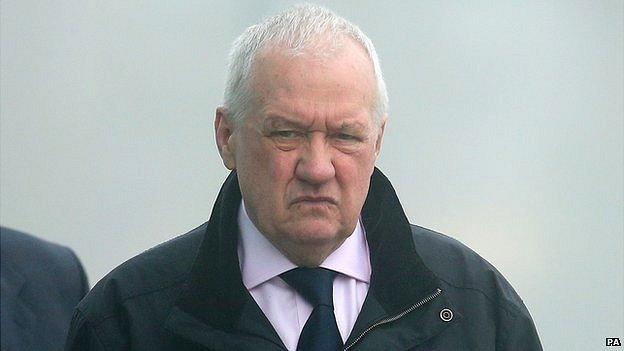
David Duckenfield has acknowledged he lied about fans forcing an exit gate open to enter the stadium
Police match commander David Duckenfield spent a week in the witness box at the new inquests into the Hillsborough disaster. But what were the key parts of his evidence, and what have we learned?
It had been a long time coming.
The last time David Duckenfield spoke in a court about the Hillsborough tragedy was in 1991, during the original inquests in Sheffield.
Now, the current jury has hours of evidence to consider from the former chief superintendent.
They watched as Mr Duckenfield said on day one he probably was not the best man for the job; that it was a "serious mistake" to accept the role of leading the police operation at the 1989 FA Cup semi-final - but that he felt "assured" about the team he had around him.
The next day, he said that failing to foresee the consequences of opening exit gates at the ground was "arguably one of the biggest regrets" of his life.
That admission was followed by the acknowledgement he had lied in the moments after the disaster.
He told the head of the Football Association that fans had forced their way into the ground - failing to tell him about his order to open exit gates.
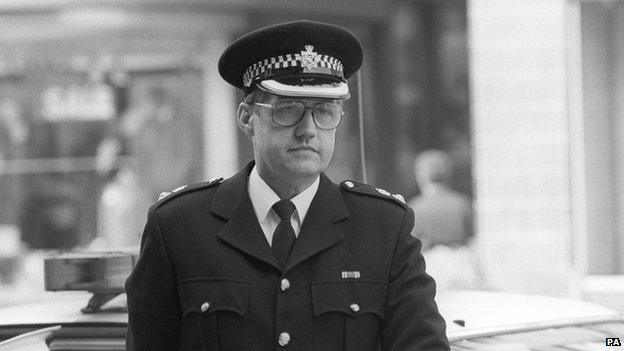
The former chief superintendent admitted to drinking heavily before the Taylor Public Inquiry in 1989
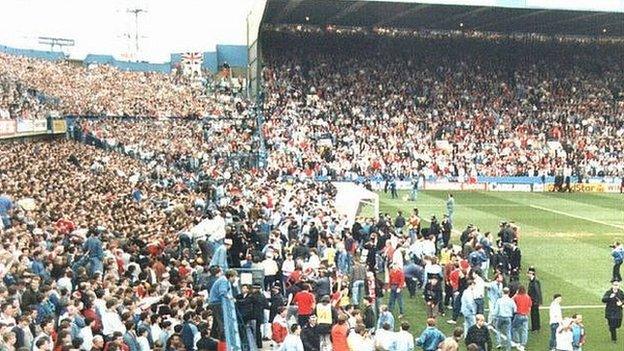
Ninety-six Liverpool fans died as a result of the 1989 disaster at Hillsborough stadium in Sheffield
He said he would regret his lie "to my dying day".
Mr Duckenfield, 70, denied his "oversight" or "mistake" about failing to close the tunnel that led into the central pens was "grossly negligent", as suggested by one of the families' legal teams.
But he said he could not deny it was a "blunder of the first magnitude".
Later, he accepted the failure to close the tunnel was "the direct cause of the deaths of 96 persons' at Hillsborough".
Mr Duckenfield sat in the witness box sipping from a plastic cup of orange juice, calmly answering questions, often at length.
Throughout this, families of the 96 victims have sat listening to each day of his evidence - 26 years into their campaign to establish more detail about what happened during the 15 April disaster.
They have described how it has been compelling, but also exhausting.

Who were the 96 victims?
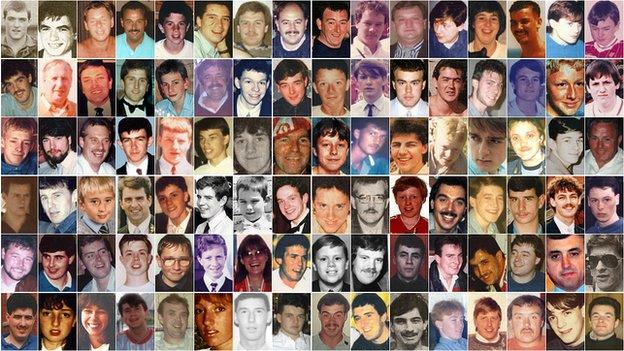
BBC News: Profiles of all those who died, external

On occasion the coroner, Sir John Goldring, was forced to issue warnings about keeping silent during Mr Duckenfield's evidence.
There were gasps in court as he admitted his lie and then more as he told the jury he suffers from post-traumatic stress disorder.
And as Mr Duckenfield spoke about why he decided to tell "the whole truth" about Hillsborough and apologising directly to the families, some relatives left their seats and walked out of the courtroom in tears.
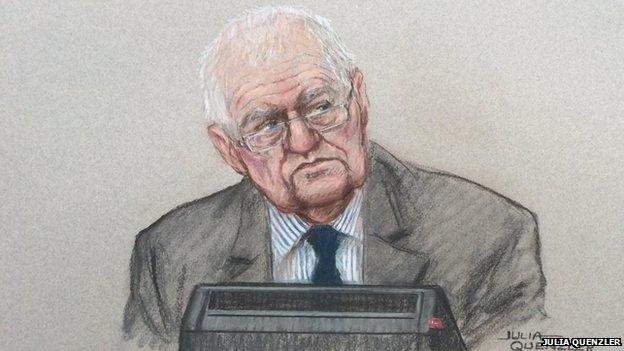
An artist's impression of Mr Duckenfield giving evidence at the new inquests into the disaster
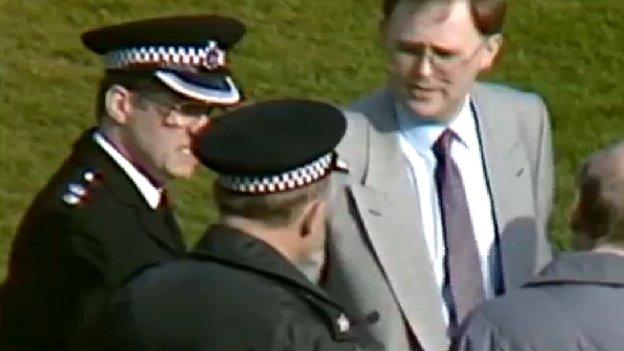
Mr Duckenfield (far left) admitted he should have been "more flexible" about delaying the match kick off
Asked by a barrister why he was choosing to make his admissions, Mr Duckenfield accepted that, having followed the evidence at the inquests, he has seen that "the writing is on the wall" and he was "driven to accepting responsibility".
The jury has also heard how police interviewed Mr Duckenfield under criminal caution in March, 2014.
He says that on the day he was doing his "best" and that ahead of the match he was "confident" he could do the job.
His own barrister said he had accepted "some very serious professional failures".
But he said that they were made when the now-retired officer was "new and inexperienced", working to "flawed" police plans, under "intense pressure" and in "unimaginably difficult and fast-moving circumstances".
For him, the jury and the families, the inquests still have a long way to go - they are due to conclude in early 2016.